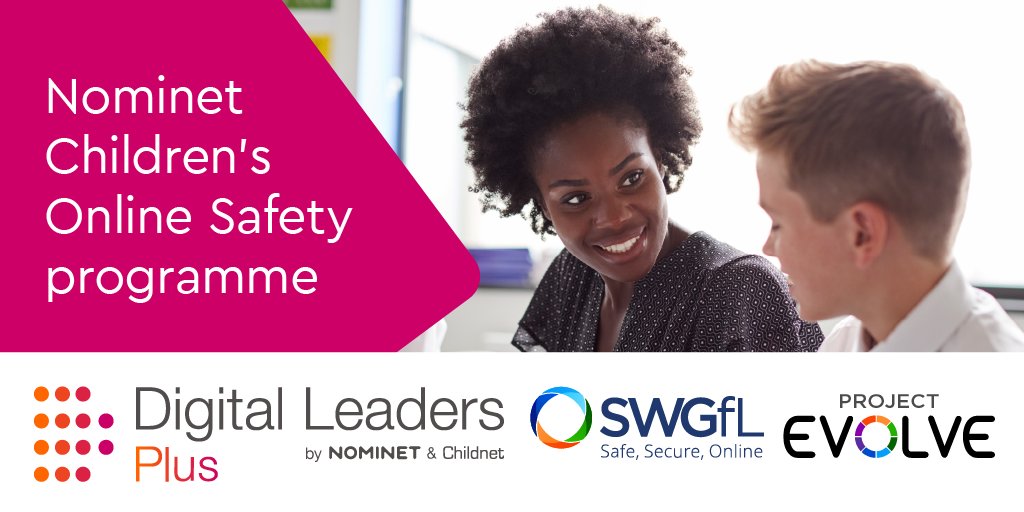Ensuring young people are safe in our ever-virtual world is critical

Even though students returned to school, college and university a few weeks ago, there is no guarantee how long they will be learning in classrooms this term as new Government restrictions start to be introduced amid rising coronavirus cases. The good news is that they are more prepared than they were back in March, with COVID-19 set to make 2020 the year of online learning.
The internet has been a lifeline for all of us this year, not to mention being the saviour of education – at least for those able to engage online. For the younger generation in particular, the internet has become ever more embedded in their lives, from formal education and social engagement to developing hobbies and interests, or fact finding. One in three internet users is a child, according to UNICEF.
Yet, high levels of usage do not necessarily translate to high levels of skill or capability when it comes to using online platforms safely. In 2019, Ofcom found that just over 50% of 12 to 15-year olds said that they felt it was difficult to work out whether news on social media is accurate or not. This is concerning, especially as children conduct so many aspects of their lives in the virtual sphere.
How do we, as the adults, help to keep them safe?
When it comes to education around online safety for young people, approaches are often outdated. Research into the sector has shown that many systems designed to help children are focused on adults conveying one-time lessons or messages that focus on restrictions, or withdrawal from the online world, rather than equipping children with the skills and capabilities to negotiate their own safe online experience.
We also must recognise that young people will often be using the internet unsupervised, via their smartphones or on a device in their bedroom rather than with a parent or guardian. It’s vital, therefore, that they are empowered to keep themselves safe and optimise the benefits internet usage can bring to their lives.
Equipping them with this sort of education will provide the foundations needed for confidence and cognisance to navigate the digital world safely.
Additionally, digital skills – from coding to managing social media – are fast becoming a core part of most future-facing careers, regardless of the industry they are in. This will only become more acute now that the pandemic has accelerated the digitisation of society. Understanding safe internet protocol will provide the necessary foundation for young people to continue developing these skills, supporting the economy and their own career progression.
Identifying the need is the first step; how do we deliver it?
Encouragingly, much is already being done to give school-aged children the tools and education they need, with both teachers and parents recognising the power of online learning platforms and the need to equip their charges with the skills to use them.
Beyond the education system, there are also incredible charities hard at work on this issue. Nominet has the great privilege to be supporting two of them via our recently launched Children’s Online Safety funding initiative, initially of £250,000.
They are Childnet and SWGfL, both of which have a wealth of experience supporting young people and have existing programmes that are making a huge difference to school-aged children:
 |
||
Digital Leaders |
Project EVOLVE |
|
|
Childnet runs Digital Leaders, a youth leadership training programme which empowers young people to educate their peers on online safety and internet use. Nominet funding will expand the programme into the 30 most disadvantaged areas of the UK, giving more young people the opportunity to take part without the budget of their school being a limiting factor, and enable programme-wide updates of core materials and systems. The Childnet and Nominet Digital Leaders Plus programme is expected to reach 2,000 students through 65 schools with the additional funding, setting off a ‘play it forward’ attitude to online safety that could reach further still. |
SWGfL takes a different approach to this challenge, via their Project EVOLVE. This is an engaging and easy-to-use digital tool which has been developed by specialists and – crucially – with the input of children when it comes to usability and relevance. The tool provides progressive digital skills and will cover every aspect of online life for those aged from three to eighteen, such as self-image and identity or online relationships. It’s a comprehensive approach to online safety that is tailored to each age group and provides the range of digital skills and competencies young people need. |
|
In a world where young people increasingly live and work online, it is essential that we improve the overall baseline for internet safety for children in the UK in a way that equips them with tools to independently make responsible decisions.
It’s a challenging task – we, the adults, are trying to help them deal with rapidly-evolving risks, guiding them on a digital arena that many of us did not grow up using and may not fully understand ourselves.
But by creating collaboration across the industries, connecting educators, charities and the tech sector, we can take the first crucial steps to achieve our aim and help our young people thrive in their online life.
Eleanor Bradley is the MD of Registry and Public Benefit at Nominet











Responses